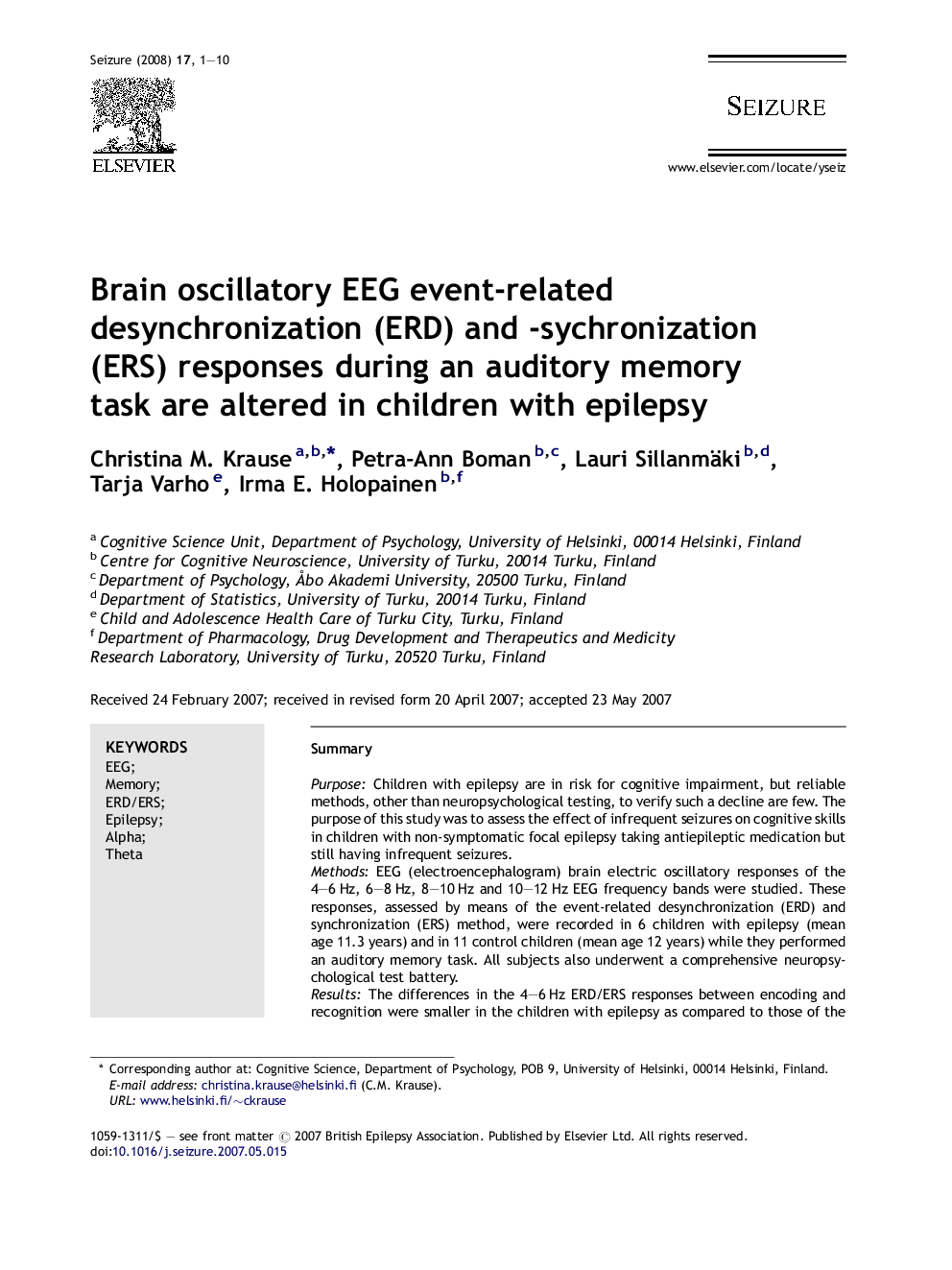| Article ID | Journal | Published Year | Pages | File Type |
|---|---|---|---|---|
| 340843 | Seizure | 2008 | 10 Pages |
SummaryPurposeChildren with epilepsy are in risk for cognitive impairment, but reliable methods, other than neuropsychological testing, to verify such a decline are few. The purpose of this study was to assess the effect of infrequent seizures on cognitive skills in children with non-symptomatic focal epilepsy taking antiepileptic medication but still having infrequent seizures.MethodsEEG (electroencephalogram) brain electric oscillatory responses of the 4–6 Hz, 6–8 Hz, 8–10 Hz and 10–12 Hz EEG frequency bands were studied. These responses, assessed by means of the event-related desynchronization (ERD) and synchronization (ERS) method, were recorded in 6 children with epilepsy (mean age 11.3 years) and in 11 control children (mean age 12 years) while they performed an auditory memory task. All subjects also underwent a comprehensive neuropsychological test battery.ResultsThe differences in the 4–6 Hz ERD/ERS responses between encoding and recognition were smaller in the children with epilepsy as compared to those of the control children. In the 6–8 Hz frequency band, the responses of the two groups dissociated most notably in the frontal electrodes. No statistically significant differences in the alpha frequency range (8–12 Hz) were observed between the groups.ConclusionsSignificant alterations in the lower EEG frequency (4–8 Hz) ERD/ERS responses in children with epilepsy during auditory memory processing, as compared to age-matched, healthy children may suggest that seizures affect memory and underlying brain processes, indexed also by poorer performance particularly in neuropsychological subtests related to language functions.
